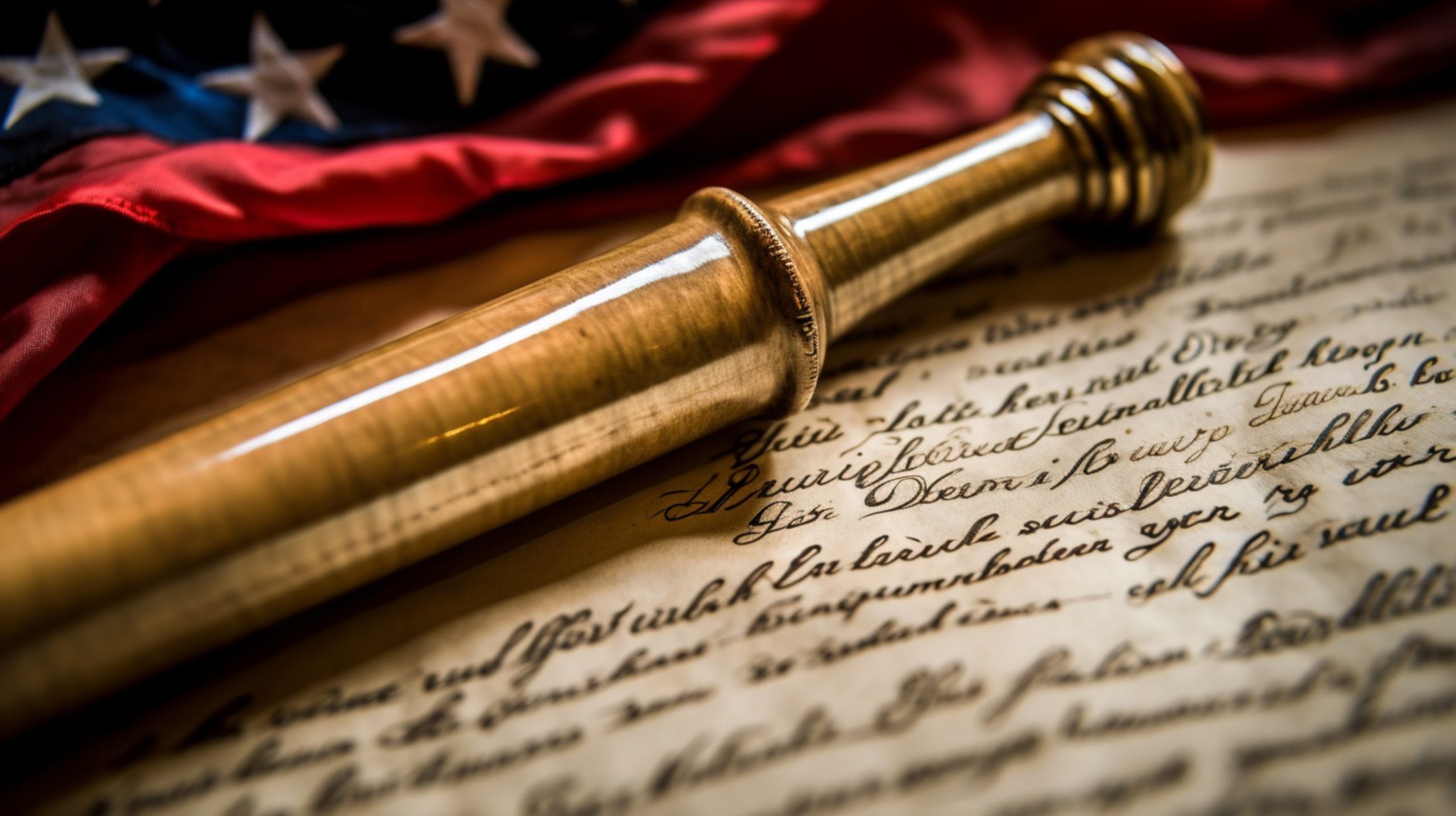1776 - The Constitution of the United States Adopted by the Constitutional Convention

The Constitution adopted by the Convention on September 17,
1787, was signed by all but three delegates and ultimately ratified by
all 13 states. The “Connecticut Compromise” basing representation in
the House on population and providing each state equal votes in the
Senate is embodied in Article I, Sections 2 and 3. The Brearley
Committee can take credit for most of Article II, which creates the
electoral college, defines the powers of the presidency, and provides
for impeachment proceedings. An independent judiciary is created in
Article III, although no mention is made of the power of judges to
declare laws unconstitutional; the delegates regarded that power to be
understood in the wake of Judge Brearley’s Holmes v. Walton decision
and similar cases in other states.
We, the people of the United States, in order to form a more perfect
Union, establish justice, insure domestic tranquility, provide for the
common defense, promote the general welfare, and secure the blessings
of liberty to ourselves and our posterity, do ordain and establish this
Constitution for the United States of America.
Article IV
Section 1 – Each State to give credit to the public acts, etc. of every other State.
Full faith and credit shall be given in each state to the public acts, records and judicial proceedings of every other state. And the Congress may by general laws prescribe the manner in which such acts, records and proceedings shall be proved, and the effect thereof.
Section 2 – Privileges of Citizens of each State.
Fugitives from Justice to be delivered up. Persons held to service having escaped, to be delivered up.
- The Citizens of each state shall be entitled to all privileges and immunities of Citizens in the several states.
- A person charged in any state with treason, felony, or other crime, who shall flee justice, and be found in another state, shall, on demand of the executive authority of the state from which he fled, be delivered up, to be removed to the state having jurisdiction of the crime.
- No person held to service or labour in one state, under the laws thereof, escaping into another, shall, in consequence of any law or regulation therein, be discharged from such service or labour, but shall be delivered up on claim of the party to whom such service or labour may be due.
Section 3 – Admission of new States. Power of Congress over territory and other property.
- New states may be admitted by the Congress into this union; but no new state shall be formed or erected within the jurisdiction of any other state, nor any state be formed by the junction of two or more states, without the consent of the legislatures of the states concerned, as well as of the Congress.
- The Congress shall have power to dispose of and make all needful rules and regulations respecting the territory or other property belonging to the United States; and nothing in this constitution shall be so construed as to prejudice any claims of the United States, or of any particular state.
Section 4 – Republican form of government guaranteed. Each State to be protected.
The United States shall guarantee to every state in this union, a republican form of government, and shall protect each of them against invasion; and on application of the legislature, or of the executive (when the legislature cannot be convened), against domestic violence.
